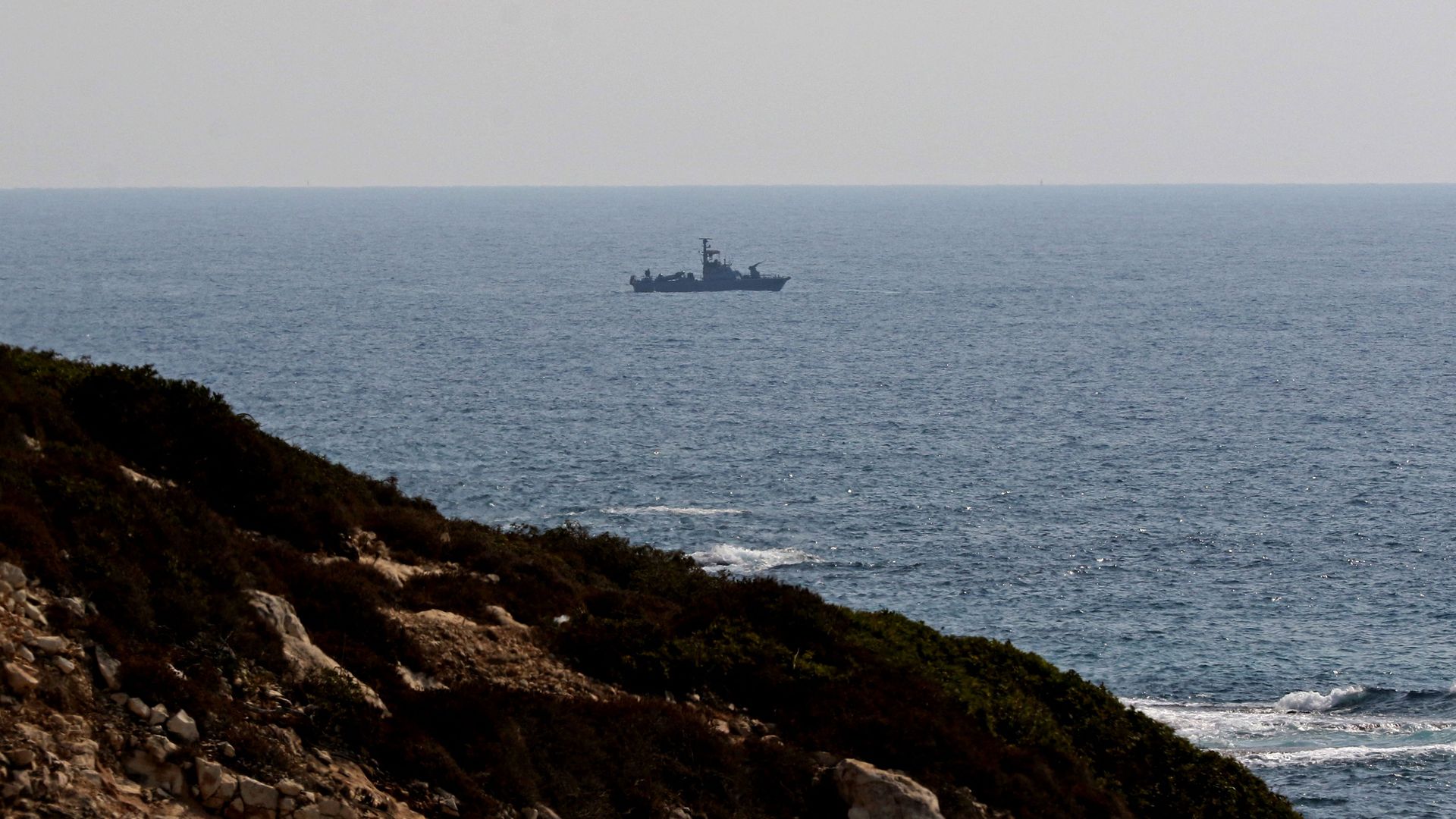
An Israeli navy vessel patrols in the Mediterranean Sea at the maritime border between Israel and Lebanon on Sept. 4. Photo: Mahmoud Zayyat/AFP via Getty Images
Israeli and Lebanese officials see the upcoming visit of U.S. envoy Amos Hochstein as crucial to the efforts to reach a deal to end the maritime border dispute between Israel and Lebanon and de-escalate the situation.
Driving the news: Hochstein is expected to arrive in the region in the coming days to try to push the parties closer to an agreement, Israeli officials said.
- The deputy speaker of the Lebanese parliament Elias Bou Saab said Hochstein will visit Israel first and then travel to Lebanon.
Why it matters: The U.S., Lebanon and Israel have expressed a sense of urgency to get a deal as soon as possible as Hezbollah intensifies its threats to go to war if Beirut's economic rights are not respected.
- The dispute is over a potential gas-rich, 330-square-mile disputed area of the Mediterranean Sea with an estimated value reaching billions of dollars.
- Hezbollah leader Hassan Nasrallah has called the beginning of production in the Karish rig, a major Israeli gas project that Israel says is located south of the disputed area, a red line.
- The rig won’t come online before the end of September, according to Israeli officials.
What they're saying: Bou Saab said on Tuesday after a meeting with President Michel Aoun that September will be decisive and stressed Lebanon has other options without elaborating. He denied reports that he asked Hezbollah for guarantees it won’t follow through on its threats to begin a war.
- A senior Israeli official involved in the talks said the upcoming round of indirect talks is “decisive and important."
- "We are ready to give the Lebanese almost everything they want, but they will have to give things too," the Israeli official said. "We want to make sure that the part of the maritime border close to the coast doesn’t change and that Israel also gets its economic rights. The question is whether the Lebanese agree," said the Israeli official.
Between the lines: President Biden last weighed in on the Israel-Lebanon negotiations, telling Israeli Prime Minister Lapid he wants a deal within weeks.
- A senior U.S. official said Biden did that because the issue has become urgent and could lead to dangerous consequences for the region.
